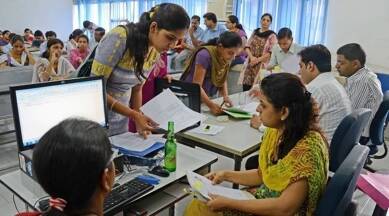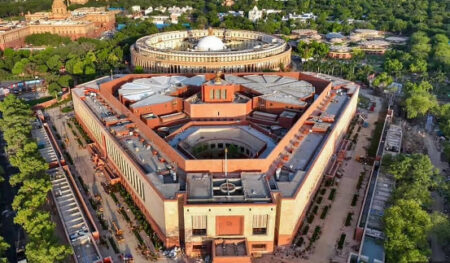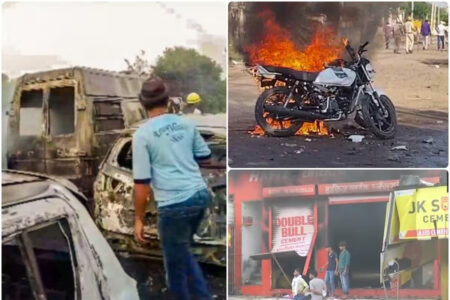Keep in mind the issues of economic backwardness , unlike the issues which basically related to caste ,can be the issues which may be considered as “temporary” issues , a constitution bench of the Supreme Court asked on Thursday that if the issues related to the specific Economically Weaker Sections (EWS) can be addressed through various affirmative measurements like providing scholarship and concession of fees in various education purposes instead of giving them the opportunity of reservation throughout.
“When someone talks about other types of reservation, it is then basically related to the race of their families ,but this backwardness is not something which is not temporary but goes down through centuries and generations . But one the other hand the economic backwardness can be considered as temporary backwardness” ,Chief Justice of India U U Lalit, presiding over a five-judge Constitution Bench, said that while hearing the petitions which are challenging the 103rd amendment of the Indian Constitution by raising the issues that ten percent (10%) of quota seats are provided to the EWS categories candidates in various types of admissions in education sectors and also in various government sectors.
The CJI responds to the submission by advocate Vibha Makhija, who basically appreas for some EWS catagory students and said that it was legally permissible by the constitution to have economic condition as a criterion for providing this type of reservation catagory.He elaborate on the issues of the transformative character of the constitution and said that the makers of the Indian constitution would never have encountered with the situation where the caste remains the sole criterion for giving various types of reservation seats or quotas.
The bench includes Justices Dinesh Maheshwari, S Ravindra Bhat, Bela M Trivedi and J B Pardiwala, posed various types of questions on the issue of the “indeterminability” of the EWS category due to the non presence of any well researched and we’ll define guidelines.There is indeterminability… You call it flexibility but actually it is an indeterminability,” Justice Bhat told Solicitor General Tushar Mehta who defended this amendment.Mehta also added by saying that the issues of the social backwardness is not well defined in the Indian constitution . Justice Bhat said that only because of this issue , one can go beyond the constitution,to the Preamble, speeches of the constitution makers etc.He said that in the case of the EWS issues “you are in an uncharted sea”.Justice Maheswari also points out that there is “no methodologyat all , no guidelines “,as for those who would constitute the EWS.
Mehta added by saying that this issues can be resolved by setting a commission . “It is curable . The government can make a conclusion with the help of the commission . If some states are implemented the EWS without participating the excercise .. that type of executive actions may be challenged ” , he said and also added by saying that “absence of guidelines is not a ground for challenging amendment”.
He said that any amendment in the constitution cannot be stuck down unless it violets the basic structure The amendment does not destroy the fundamental structure, but rather strengthens it by providing justice – economic justice, which is a fundamental part of the Preamble.”
He said the submission of the petitioners ” basically restricted the actions which are affarmative in nature present in the constitution within the caste paradigm which was not basically the intention not it can be said that this is the basic structure of the Indian constitution “.

Read More: Iran: Dissent, Defiance and the Protests, Women Fight for their Rights













